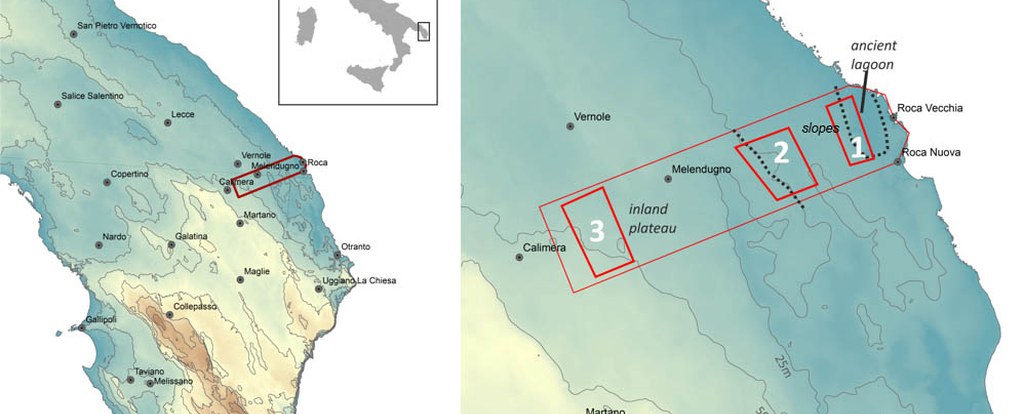Landscape of Mobility and Memory

The research project which I have conducted at the University of Bologna and which includes the Roca Archaeological Survey.
Heritage of dictatorship in Albania
In recent times, together with Klejd Këlliçi, a colleague from the University of Tirana, I have been working on a research project aimed at the assessment of the perception of the cultural heritage from the dictatorship period in contemeporary Albania. The result of such research effort will appear in a number of articles currently in preparation.
Politics and Archaeology
Perhaps as a result of my Marxist 'inclinations', the relationship between politics, Heritage and archaeology has always ranked high among my interests. This interest has stemmed in a series of articles and conference papers dealing with this topic mostly in the Italian context from the 1960s to the present day. More recently I am also trying to focus on the analysis of this aspect in another country that I had the chance to know fairly well i.e. post-communist Albania. Finally, I have been asked also to draw a general overview of the development of Marxist Archaeology for the forthcoming Oxford Handbook of Archaeological Theory edited by A. Gardner, U. Sommer and M. Lake.
Marxist social theory and anthropology
After being fashionable for a certain amount of time (basically from the end of the 1970s to the beginning of 1980s), Marxist social theory and its application to archaeology has become extremely uncool. This damnatio memoriae has involved pretty much every possible branch of academia.
Yet, as good old Giambattista Vico used to say (among others); history is circular and what was once thought being confined to the domain of political and personal nostalgia is once again something that deserve to be taken seriously in consideration.
I am strongly convinced that some of the concepts introduced by Marx and Engels (the work of the two, is by now clear, cannot be really separated in practice) are indeed able to explain many aspects of social dynamics.
I must admit, however, that I am no religious observant. In my opinion there is no much use of the dichotomy between Marxian and Marxist social theory... after Marx, if we decide to take up some of his concepts we are all Marxists. I take in consideration the work of subsequent scholars such as Gramsci, Luckasz, Foster (among others) as well as that of many anthropologists who tried to put at work the basic conceptual tools of Marxism in pre-modern societies (above all Eric Wolf but also Maurice Godelier and Claude Meillasseaux).
Yet, as good old Giambattista Vico used to say (among others); history is circular and what was once thought being confined to the domain of political and personal nostalgia is once again something that deserve to be taken seriously in consideration.
I am strongly convinced that some of the concepts introduced by Marx and Engels (the work of the two, is by now clear, cannot be really separated in practice) are indeed able to explain many aspects of social dynamics.
I must admit, however, that I am no religious observant. In my opinion there is no much use of the dichotomy between Marxian and Marxist social theory... after Marx, if we decide to take up some of his concepts we are all Marxists. I take in consideration the work of subsequent scholars such as Gramsci, Luckasz, Foster (among others) as well as that of many anthropologists who tried to put at work the basic conceptual tools of Marxism in pre-modern societies (above all Eric Wolf but also Maurice Godelier and Claude Meillasseaux).
Interaction
Inter-societal interaction action has alway been one of the field of interest of Archaeology and Anthropology. Yet this has been also one of the most under-theorised and less understood phenomenon in its basic functioning. In recent times there has been a noteworthy interest in some of the aspect related to this burgeoning topic stemming in the application of graph theory (mostly Social Networks Analysis) to the study of history and archaeology. I have tried to move a little further, integrating Social Networks with Marxist social theory and the result of this unusual (and yet in my view fruitful) combination can be seen at work in my Ph.D. dissertation as well as in a series of forthcoming journal articles.
Pottery consumption and production
Pottery is ubiquitous in Archaeological excavation in the Mediterranean and as such has been object of much attention. Much information that can be extracted from this humble material and due to the rapid increase in popularity of scientific methods such as ceramic petrology and chemical characterisation (via a variety of methods) as well to an increased attention to context, the range and depth of the research questions we are all becoming able to pose is outstandingly growing. My involvement with pottery is long standing and has basically accompanied my whole archaeological career.


